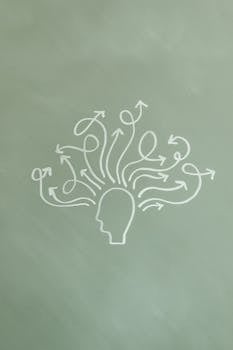
Unmasking Psychosis: Understanding the Mind's Labyrinth
Psychosis. The word itself conjures images of fractured realities and disconnected thoughts. But what does it truly mean to experience psychosis? This complex mental state, often misunderstood and stigmatized, affects millions worldwide. Understanding its causes, symptoms, and treatment is crucial to fostering empathy and improving the lives of those affected. This article delves into the fascinating, yet often frightening, world of psychosis, exploring its nuances and shedding light on the path to recovery.
What is Psychosis?
Psychosis is not a single disorder but rather a symptom cluster characterized by a profound disconnect from reality. Individuals experiencing psychosis may exhibit a range of symptoms, including:
- Hallucinations: These are sensory perceptions that occur without an external stimulus. They can involve any sense – sight, hearing, touch, smell, or taste – but auditory hallucinations (hearing voices) are the most common.
- Delusions: These are fixed, false beliefs that are not based in reality. Delusions can vary widely in content, ranging from beliefs of persecution or grandeur to bizarre and unusual ideas.
- Disorganized thinking and speech: This can manifest as difficulty expressing thoughts coherently, jumping from one topic to another (loose associations), or speaking in a way that is difficult to understand (thought derailment).
- Disorganized or abnormal motor behavior: This can range from agitated movements and restlessness to catatonic behavior (a state of immobility and unresponsiveness).
- Negative symptoms: These involve a decrease or absence of normal functions, such as reduced emotional expression (flat affect), lack of motivation (avolition), and difficulty experiencing pleasure (anhedonia).
- Genetic predisposition: A family history of psychosis significantly increases the risk. Genetic research is ongoing to identify specific genes involved.
- Brain abnormalities: Studies using neuroimaging techniques have revealed structural and functional differences in the brains of individuals with psychosis, particularly in areas associated with thought processing and emotion regulation.
- Neurotransmitter imbalances: Disruptions in the brain's chemical messengers, such as dopamine and glutamate, are believed to play a crucial role.
- Environmental factors: Exposure to trauma, stress, substance abuse, and infections during critical periods of brain development can increase vulnerability.
- Schizophrenia: A chronic and severe mental illness characterized by persistent psychosis, along with negative symptoms and cognitive impairments.
- Bipolar disorder: A mood disorder involving episodes of mania (extreme highs) and depression, with psychotic symptoms often occurring during manic episodes.
- Major depressive disorder with psychotic features: A severe form of depression where individuals experience psychotic symptoms, such as hallucinations and delusions.
- Schizoaffective disorder: A condition characterized by a combination of schizophrenia and mood disorder symptoms.
- Brief psychotic disorder: A temporary episode of psychosis lasting less than one month.
- Substance-induced psychotic disorder: Psychosis triggered by the use of drugs or alcohol.
- Medication: Antipsychotic medications are the cornerstone of treatment, helping to reduce hallucinations, delusions, and other psychotic symptoms.
- Psychotherapy: Cognitive behavioral therapy (CBT) and other forms of psychotherapy can help individuals understand and manage their symptoms, develop coping strategies, and improve their overall functioning.
- Social support: Strong social networks and family support are crucial for recovery. Family therapy can be particularly helpful in improving communication and reducing stress within the family system.
- Hospitalization: In some cases, hospitalization may be necessary to ensure the safety and stability of the individual, especially during acute psychotic episodes.
Causes of Psychosis:
The exact causes of psychosis are multifaceted and not fully understood. However, several factors are known to contribute:
Common Disorders Associated with Psychosis:
Psychosis is a symptom, not a diagnosis in itself. It is a prominent feature of several mental health disorders, including:
Treatment and Management of Psychosis:
Treatment for psychosis typically involves a combination of approaches:
Living with Psychosis:
Living with psychosis can be challenging, but recovery is possible. With appropriate treatment and support, many individuals can lead fulfilling and productive lives. Early intervention is key, and access to quality mental healthcare is essential.
Overcoming Stigma:
Stigma surrounding psychosis remains a significant barrier to seeking help. Open conversations, education, and empathy are crucial in dismantling this stigma and creating a more supportive environment for individuals experiencing psychosis. Understanding that psychosis is a treatable condition and that recovery is achievable is vital.

